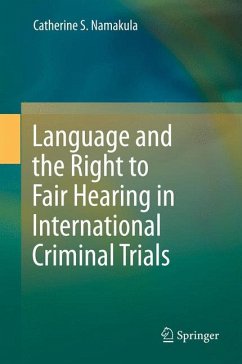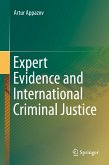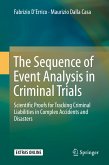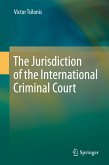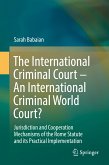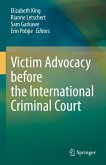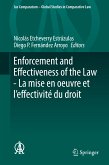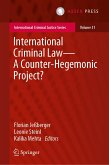Language and the Right to Fair Hearing in International Criminal Trials explores the influence of the dynamic factor of language on trial fairness in international criminal proceedings. By means of empirical research and jurisprudential analysis, this book explores the implications that conducting a trial in more than one language can have for the right to fair trial. It reveals that the language debate is as old as international criminal justice, but due to misrepresentation of the status of language fair trial rights in international law, the debate has not yielded concrete reforms. Language is the core foundation for justice. It is the means through which the rights of the accused are secured and exercised. Linguistic complexities such as misunderstandings, translation errors and cultural distance among participants in international criminal trials affect courtroom communication, the presentation and the perception of the evidence, hence jeopardizing the foundations of a fair trial. The author concludes that language fair trial rights are priority rights situated in the minimum guarantees of fair criminal trial; the obligation of the court to ensure fair trial or accord the accused person a fair hearing also includes the duty to ensure they can understand and be understood.
Dieser Download kann aus rechtlichen Gründen nur mit Rechnungsadresse in A, B, BG, CY, CZ, D, DK, EW, E, FIN, F, GR, HR, H, IRL, I, LT, L, LR, M, NL, PL, P, R, S, SLO, SK ausgeliefert werden.

